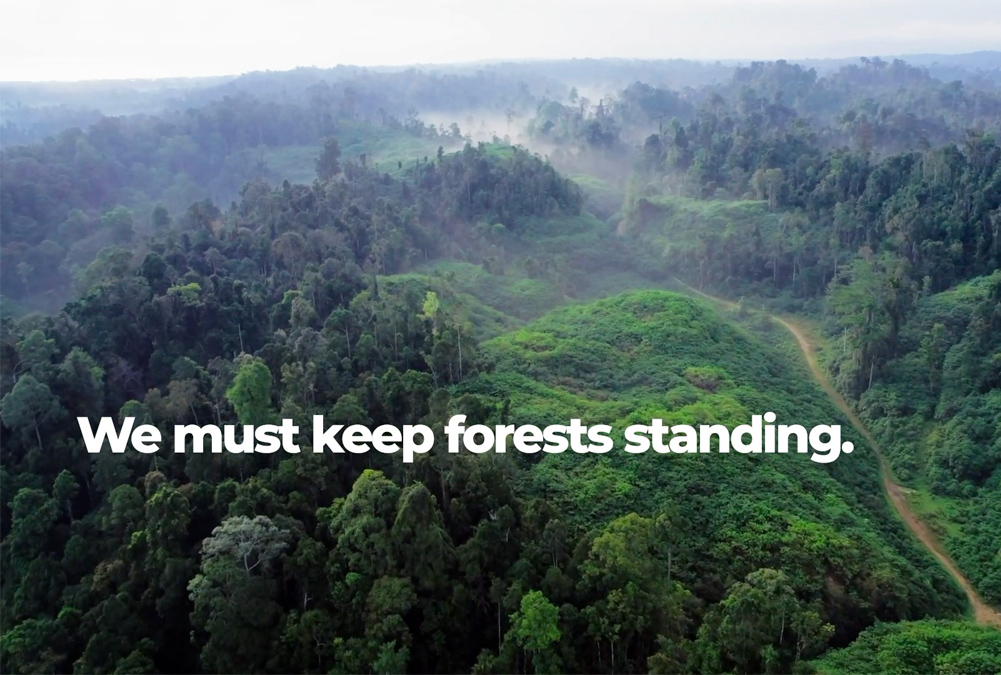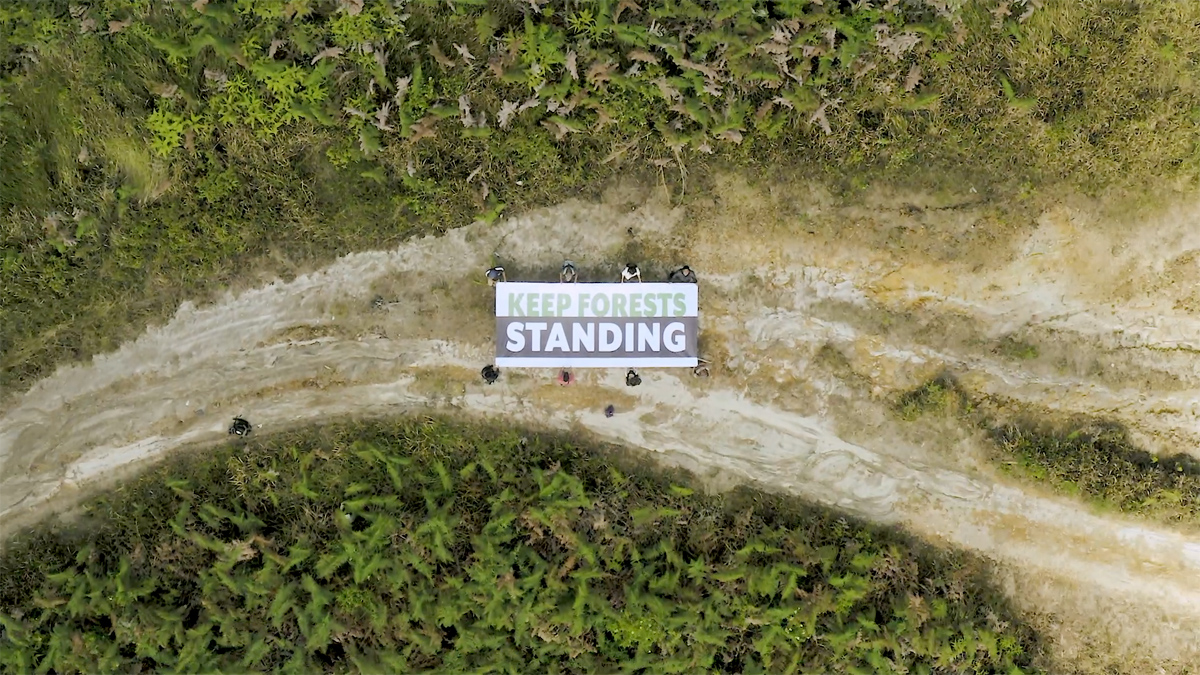2019 closed out the hottest decade on record by being the second-hottest year … ever. The evidence of that heat was felt all around the globe, as forest fires raged in the Amazon and in the rainforests of Indonesia and the Congo throughout the fall of 2019. Add to that, the unimaginably devastating fires in Australia, that still continue to burn, first began in 2019. The fire season of 2019 – 2020 has been unprecedented, as the bulk of the world’s tropical rainforests — which are found in a narrow band circling the Equator — all burned at the same time.
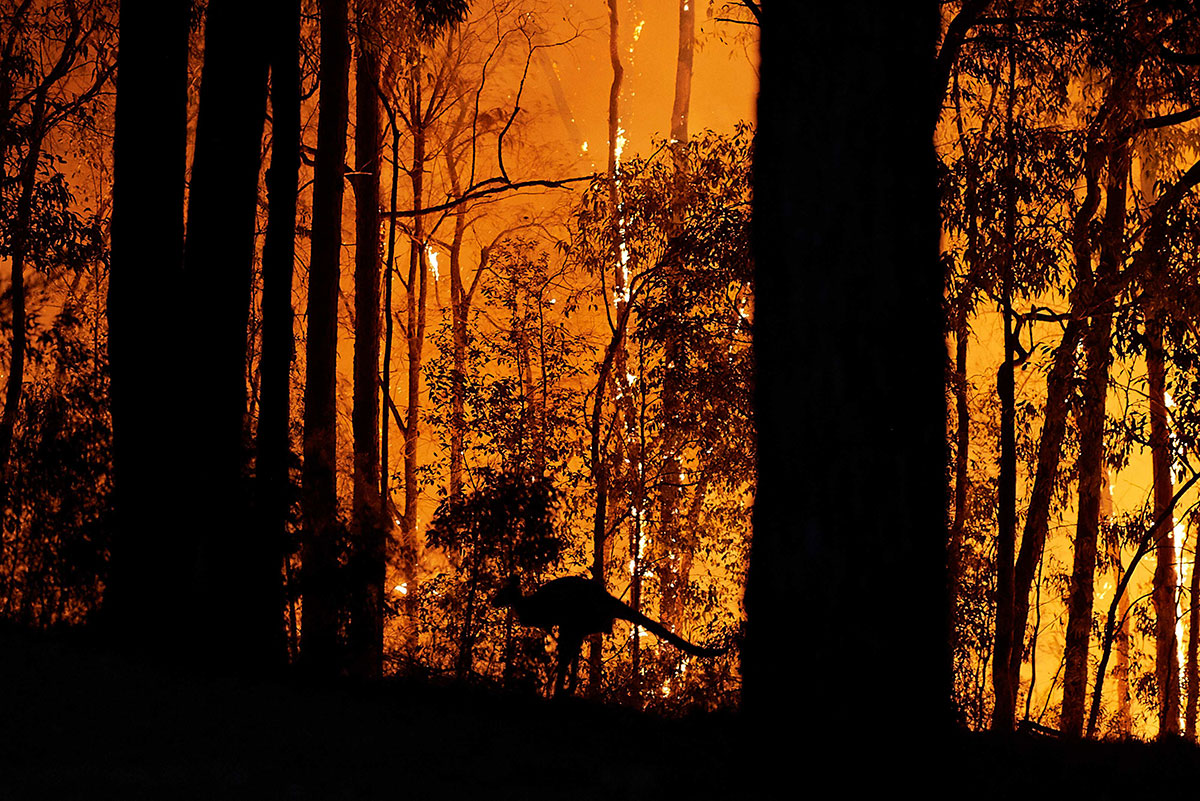
A climate-stable future requires healthy forests, but forests and forest peoples are at greater risk than ever. From the Amazon to the Congo Basin to the islands of Indonesia, these rainforests are as critical to the local and Indigenous communities and countless species that call them home as they are to the future stability of our global climate. But these rainforests are going up in smoke to make the products that fill stores all around the world.
Here we are in a new year and 2020 requires bold action from all of us. We must keep forests intact and standing. We must uphold the rights of frontline and Indigenous communities as they face the most immediate harm. We must draw a line in the sand: not another forest cleared.
Keeping Forests Standing and Upholding Rights
We must keep forests standing, and we’ve had the solution all along. Thanks to one of the latest reports from the Intergovernmental Panel on Climate Change, the science has confirmed what Indigenous people and history have long shown to be true: Strong and organized local and Indigenous communities are a key defense against corporate expansion. Frontline communities have proven time and time again to be some of the most powerful leaders in the fight for a livable and just future for all.
It is imperative that we support Indigenous and frontline communities as they face land grabbing, criminalization, violence and more. We must support communities in their fight to gain legal rights to their land and ensure their ability to protect and manage it — sustaining their ways of life and safeguarding the vast majority of the world’s biodiversity from extinction. By supporting those that protect the forest, we can slow the worst impacts of climate change.
Whether you have a rainforest in your backyard or the nearest one is half a world away, we all depend on forests. Now in 2020, it’s become clear that, as scientists have said, “Our planet’s future climate is inextricably tied to the future of its forests.” For a livable future, we must stop the onslaught of deforestation by holding corporations accountable for their impacts and upholding land rights.
Protecting the Climate
Rainforests are our most powerful defense against the climate devastation people around the world are already facing. It’s not 10 years away, it’s not 2 years off, the climate crisis is here, and forests are nature’s best solution for combating it. But, less than 50% of the world’s tropical forests remain standing. We lose more at an alarming rate every day, the equivalent of one football field every second.
Tropical deforestation, the result of unrelenting industrial and agricultural expansion, accounts for a huge percentage of the world’s annual carbon emissions. If tropical deforestation were a country, it would be the third-largest emitter in the world, only behind China and the United States. And emissions from deforestation are only getting worse, having more than doubled in the last few years. If tropical deforestation continues at the current rate, a climate-stable future will be all but impossible.
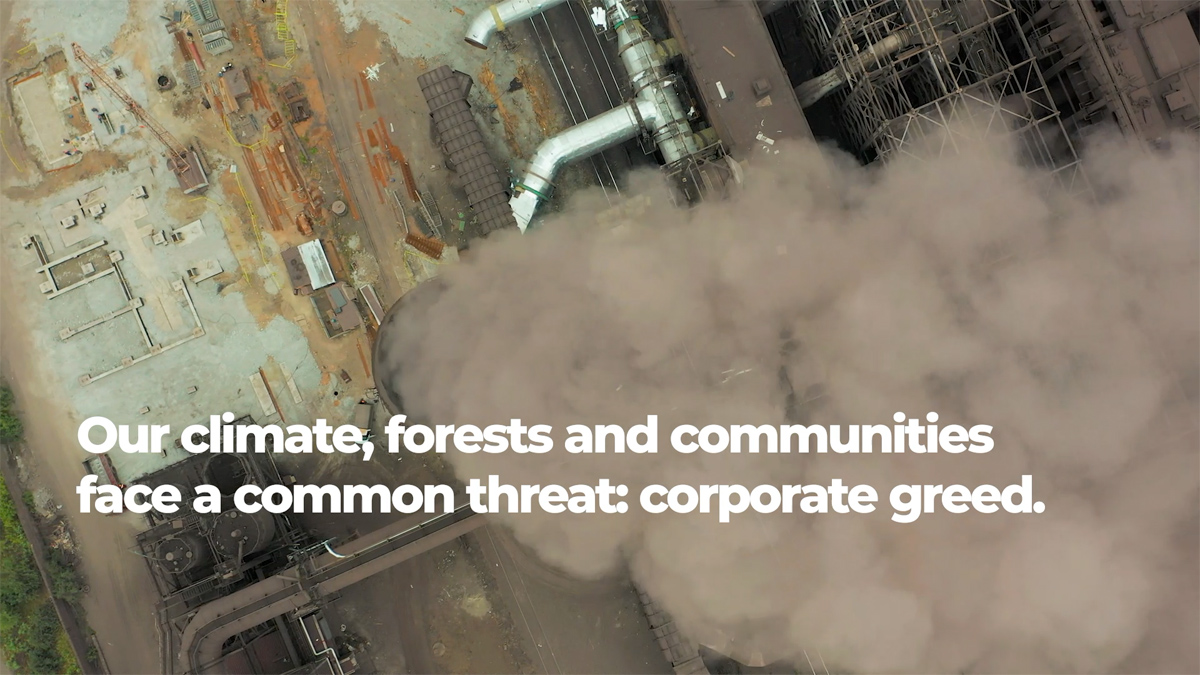
Following the Money
We need just, transformational change across all systems of modern life. At RAN, we focus on challenging corporate power because it’s corporations that are the worst polluters, the most rampant consumers, and the biggest exploiters of people and the planet. Unchecked corporate greed ignores laws, regulations, and moral imperatives for maximum profit. We are all left to pay the incredibly high price.
For decades, corporations have exploited forests and violated the rights of communities and workers for the products that line our store shelves. Rainforests in Indonesia — some of the most biodiverse and critical remaining rainforests on Earth — are being cut down every day for Conflict Palm Oil, the fiber for fabrics, paper, plywood and more. And the funding for this destruction continues to flow from major banks all around the world.
We join with frontline communities — those already feeling the devastation of this crisis — and say: No More!
We will not accept greenwashing and half-measures. This crisis of forest destruction, human rights violations and a heating planet require urgent, real-world action: transparent, measurable and enduring solutions for forests and communities. Nothing less is acceptable.
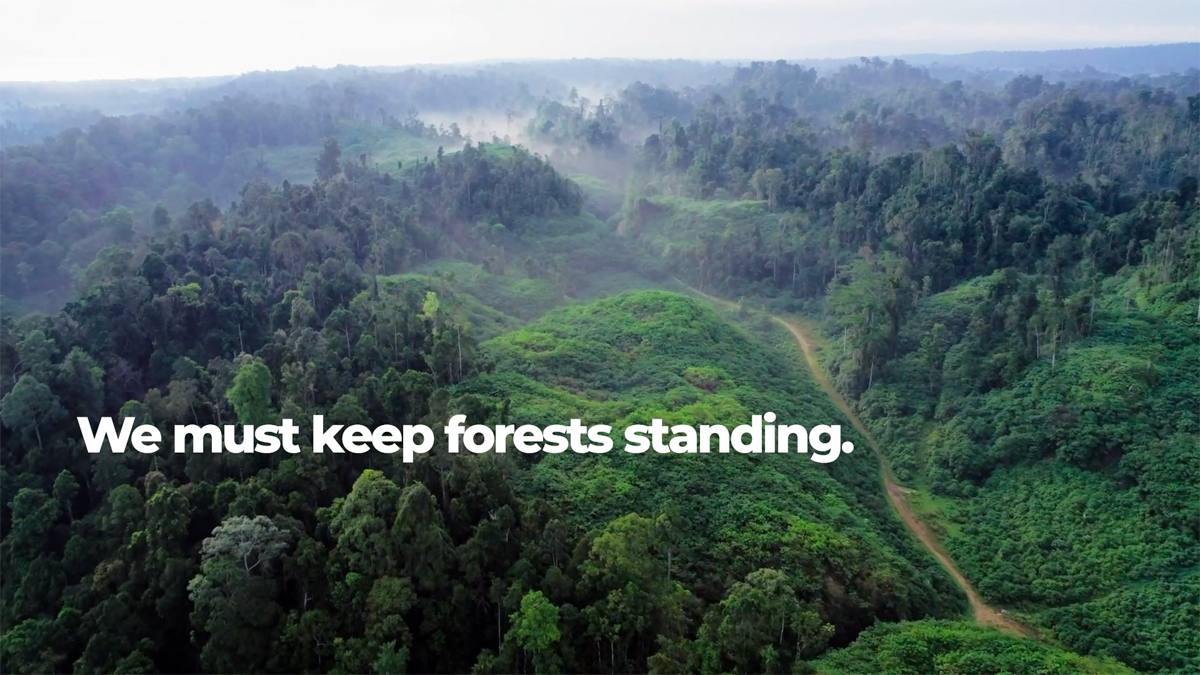
That’s why we are targeting some of the most influential multinational brands and banks which are pouring billions of dollars into the industries responsible for the destruction of Indonesia’s rainforests and the exploitation of its Indigenous Peoples and communities.
While these multinational brands are responsible for driving the huge demand for products made at the expense of forests, global banks provide the funding for such industries. We must make doing business with companies that are complicit in deforestation and human rights abuses untenable.
We’re moved to action and determined to fight for the future, in part because of the big, bold resistance that frontline communities all around the world have been mounting for years. From Standing Rock to the Mississippi River Delta — from the Indonesian rainforests, to the Congo Basin, to the Amazon in South America — communities have been standing up to extractive industries and they’ve been winning. Community organizing has won Indigenous land rights and revoked wrongfully issued government permits that would have allowed the destruction of Indigenous land. Community resistance has stopped new pipelines from being built, new coal plants from being developed, and new areas of forest from being cut down.
Collectively, we can challenge corporate power and win.
